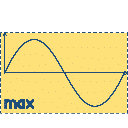Overview of Module Package AD 2000 / Section B
The AD 2000 / section B modules cover the calculation rules and proofs demanded by the according ‘Merkblatt’ (working sheet). Additional information and hints for pursuing calculations or deficiencies in the code can be displayed dynamically by using the InfoBrowser.
The calculation documentation is similar to the EN standards.
Individual modules not listed in this overview can be found in the alphabetical listing of modules.
Interfaces to CAD systems on request.

Project – BOM
The Project module summarizes operational and test data, as well as the main parts of a pressure vessel including main geometrical data and used material in one working sheet. For the final calculation, the specified modules are adjusted and their data are connected to the working sheet.
The Project module determines which calculation code is used and according to which standard the material definition should be done.
Material Database – WERK
Selection and documentation of materials for the design of pressure vessels
The program determines the permissible strength characteristics depending on temperature, component geometry, the code and delivery standard. All values are displayed, can be printed, copied to the clipboard, stored in a file (e.g. for further processing with MS WORD) or transferred to any calculation modules such as AD 2000/EURONORM/ASME/TRD
The material server is bilingual. You can switch from German to English and vice versa.

The additional information needed to calculate the max. allowable operating pressure, test pressure and reference pressure for AD S1 are implemented. In addition, it is possible to set the boundary conditions yourself, e.g. for pressure shock, water hammer and explosion waves-calculations.
The joint efficiency factors for the load cycle calculation are proposed by the program and can be adapted to the circumstances at any time.

Design pressure according to B0 / Test pressure according to HP 30
Module B0 determines the calculation and test pressure for pressure vessels under internal pressure. Cooperating with the PMAX program the maximum allowed test pressure and the maximum allowed load cycles are determined.

B1 – Domed ends under internal and external pressure
Module B1 calculates, in addition to the requirements of the Merkblatt, the maximum permitted unreinforced opening, the operating, empty and test weight and the permissible pressures.

B2 – Conical shells under internal and external pressure
The B2 module determines the run-out length and the required wall thickness at the transition area cone/cylinder.and the required wall thickness outside the taper area.
It also determines operation, dead and test weight and the allowable pressures.

B3 – Domed ends under internal and external pressure
The B3 module determines the required wall thickness in the knuckle area and in the crown section area, as well as the necessary skirt height of tori spherical ends, semi-ellipsoidal ends or hemispherical ends. For the actual wall thickness, the largest non reinforced opening is indicated, which requires no additional proof.

B4 – Spherical dished ends
Spherical dished ends with loose flange, spherical dished ends with reinforced flange, and spherical dished ends with the same wall thickness in head and flange can be dimensioned with the B4 module.
Spherically dished ends are loaded by internal or external overpressure and by the flange connection. In the transition area between spherical part and flange, the stress increase is taken into account in the form of factors. Since these values depend on geometry, an iterative approach is required for interpretation.
At the same time, the calculations can be performed with the corresponding Euronorm modules.

B5, B5A1, B51C Flat ends and plates together with supports
Module B5 determines the required wall thickness of stiffened or unstiffened flat ends and plates. For plates with boundary moment the gasket factors are provided.
The Merkblatt’s required proof of a separate stress deformation analysis can be carried out with module 12516.
The proof of axial loads is done with the B51A module. The B51C module performs the proof of the projected flange ring.

B6 – Cylindrical shells under external pressure
For a simplified calculation of pipings the DIN EN ISO 1127 is included.

B7 – Bolts
The module B7 determines the minimum bolt forces for
circular, rectangular or arbitrary bolted connections with
internal or full-face gaskets,
Due to the increased test pressure in accordance with the PED,
proof of tightness was also integrated into the test pressure. The verification is performed
based on the bracing diagram.
The gasket table of the Merkblatt has been supplemented by extracts from the
gasket manufacturer catalogues. The module can also
directly access the catalogues or characteristic values of some gasket
manufacturers via Internet access.

B8 – Flanges
Module B8 determines the required flange thickness of
- welding-neck flanges / welding-neck hubs
- set-on flanges / set-on hub
- set-on flanges with hinged bolts
- loose flanges / segmented loose flanges
- flanges with full face gasket etc.
Flange calculations can also be performed according to EN 1591 or EN 13445.

B9 – Openings in cylinders, cones and spheres under internal pressure
With module B9, round openings in cylinders, cones and
spheres can be designed using the area comparison method. Pad-type
flanges, set-on or protruding nozzles
as well as set-on discs are taken into account as reinforcing area.

B10 – Thick-walled cylindrical jackets under internal pressure
The module B10 determines the required wall thickness of thick walled
cylinders. Furthermore, it calculates the equivalent stress produced by internal pressure
and the thermal stress at the internal and external
fiber.

B13 – Single-ply bellows expansion joints
With the module B13 single-ply bellows expansion joints can be
at any time. It also determines the axial elastic spring rate and the bending spring rate
of a convolution and the allowable number of load cycles.
Module package AD 2000/section B incl. Material Database
|
The calculations can also be performed according to the corresponding EURONORM.
see also:
Dieser Beitrag ist auch verfügbar auf:
 Deutsch (German)
Deutsch (German)